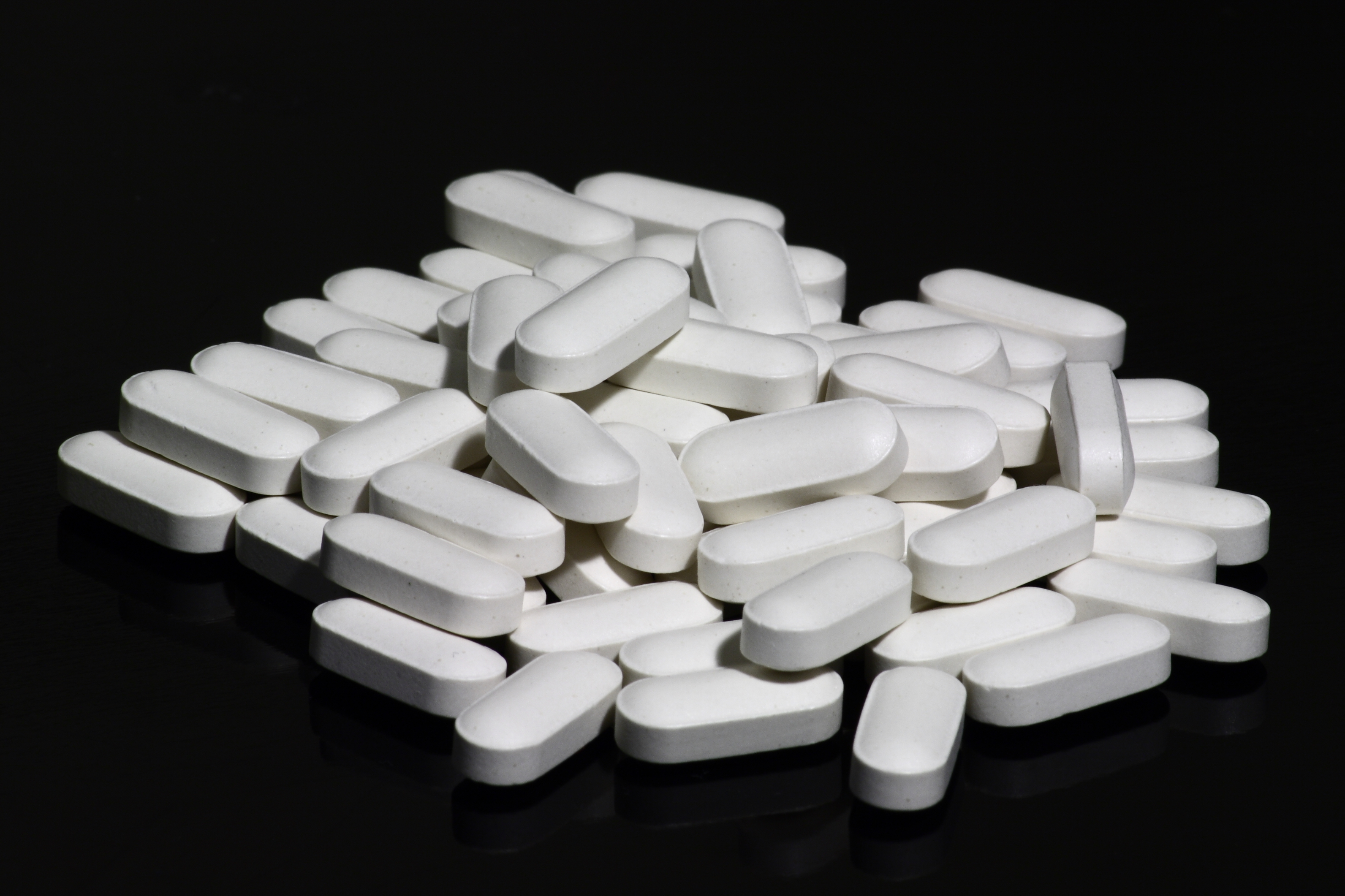 Once again, research shows that a supplement is not beneficial and may have some health harms, while eating foods rich in the mineral or vitamin being measured has health benefits. A ten year study found that calcium supplements are not beneficial and linked to health harm - they raised the risk of atherosclerosis, as measured by "coronary artery calcification" or plaque buildup in arteries, while a diet high in calcium rich foods was linked with health benefits (a protective effect). Other studies have found a higher risk for other health problems with calcium supplements (heart attacks, kidney stones, death),
Once again, research shows that a supplement is not beneficial and may have some health harms, while eating foods rich in the mineral or vitamin being measured has health benefits. A ten year study found that calcium supplements are not beneficial and linked to health harm - they raised the risk of atherosclerosis, as measured by "coronary artery calcification" or plaque buildup in arteries, while a diet high in calcium rich foods was linked with health benefits (a protective effect). Other studies have found a higher risk for other health problems with calcium supplements (heart attacks, kidney stones, death),
Currently an estimated 43 percent of American adults take a supplement that includes calcium. Instead, for health benefits, focus on eating calcium rich foods. Some calcium rich foods are: dairy products (milk, cheese, yogurt, kefir), sardines, salmon, broccoli, collard greens, kale, edamame, figs, oranges, white beans, okra, tofu, and almonds. From Science Daily:
Calcium supplements may damage the heart
After analyzing 10 years of medical tests on more than 2,700 people in a federally funded heart disease study, researchers at Johns Hopkins Medicine and elsewhere conclude that taking calcium in the form of supplements may raise the risk of plaque buildup in arteries and heart damage, although a diet high in calcium-rich foods appears be protective.
In a report on the research....the researchers caution that their work only documents an association between calcium supplements and atherosclerosis, and does not prove cause and effect. But they say the results add to growing scientific concerns about the potential harms of supplements....But our study adds to the body of evidence that excess calcium in the form of supplements may harm the heart and vascular system.
"The researchers were motivated to look at the effects of calcium on the heart and vascular system because studies already showed that "ingested calcium supplements -- particularly in older people -- don't make it to the skeleton or get completely excreted in the urine, so they must be accumulating in the body's soft tissues," says nutritionist John Anderson, Ph.D., professor emeritus of nutrition at the University of North Carolina at Chapel Hill's Gillings School of Global Public Health and a co-author of the report. Scientists also knew that as a person ages, calcium-based plaque builds up in the body's main blood vessel, the aorta and other arteries, impeding blood flow and increasing the risk of heart attack.
Their study focused on 2,742 of these participants who completed dietary questionnaires and two CT scans spanning 10 years apart. The participants chosen for this study ranged in age from 45 to 84, and 51 percent were female. Forty-one percent were white, 26 percent were African-American, 22 percent were Hispanic and 12 percent were Chinese. At the study's onset in 2000, all participants answered a 120-part questionnaire about their dietary habits to determine how much calcium they took in by eating dairy products; leafy greens; calcium-enriched foods, like cereals; and other calcium-rich foods....The coronary artery calcium tests were repeated 10 years later to assess newly developing or worsening coronary heart disease.
Next, the investigators focused on the differences among those taking in only dietary calcium and those using calcium supplements. Forty-six percent of their study population used calcium supplements. The researchers.....found that supplement users showed a 22 percent increased likelihood of having their coronary artery calcium scores rise higher than zero over the decade, indicating development of heart disease....Among participants with highest dietary intake of calcium -- over 1,022 milligrams per day -- there was no increase in relative risk of developing heart disease over the 10-year study period.
Excerpts from the original study (Please note: CVD = cardiovascular disease, CAC = coronary artery calcification) in the Journal of the American Heart Association: Calcium Intake From Diet and Supplements and the Risk of Coronary Artery Calcification and its Progression Among Older Adults: 10‐Year Follow‐up of the Multi‐Ethnic Study of Atherosclerosis (MESA)
Recent evidence derived from randomized, controlled trials, including the Women's Health Initiative, have raised a concern for an association between calcium supplement use and increased risk for CVD events.12, 13, 14 Among calcium supplement users, a high intake of calcium greater than 1400 mg/day has been reported to be associated with higher death rates from all causes, including from CVD.15
The purported CVD risk associated with total calcium intake may depend on the source of calcium intake.3 Intake of calcium from food sources has not been shown to increase CVD risk, whereas a signal for increased risk of myocardial infarction (MI) among calcium supplement users has been reported.7 In a similar fashion, dietary calcium intake may decrease risk of kidney stones, whereas calcium supplementation may increase risk.16 One explanation for this apparent paradox may be that large boluses of calcium intake through supplements may transiently elevate serum calcium concentrations,17, 18 which, in turn, may lead to vascular calcification and other adverse health effects.
In summary, results from this long‐term study of 10 years showed a protective relationship between total calcium intake and incident coronary atherosclerosis, particularly among nonsupplement users. Even though mean total calcium intake in quintile 5 was greater than the upper limits of current recommendations, no increased risk of CAC progression was found, and the highest quintile of calcium intake actually had decreased risk of incident CAC among those without prevalent CAC at baseline. However, we found evidence that calcium supplement use was independently associated with incident CAC, whether or not we adjusted for total calcium intake.
 It seems that every so often another study finds that daily coffee consumption is healthy for a person. A recent large study found that daily drinking of 2 to 3 cups coffee is associated with a lower risk of early death (from any cause) and lower risk of cardiovascular disease, when compared to non-coffee drinkers.
It seems that every so often another study finds that daily coffee consumption is healthy for a person. A recent large study found that daily drinking of 2 to 3 cups coffee is associated with a lower risk of early death (from any cause) and lower risk of cardiovascular disease, when compared to non-coffee drinkers.
 Once again a study finds health benefits from consuming a Mediterranean style diet - a diet rich in fruits , vegetables, whole grains, nuts, seeds, legumes (beans), olive oil, and fish. The US
Once again a study finds health benefits from consuming a Mediterranean style diet - a diet rich in fruits , vegetables, whole grains, nuts, seeds, legumes (beans), olive oil, and fish. The US  A recent study looking at high dose supplementation of vitamin D found that it did not prevent cardiovascular disease. This study came about because of earlier studies observing that there is a higher incidence of cardiovascular disease in persons with low vitamin D levels (as measured in their blood). But such results from observational studies need rigorous testing in studies where people are randomly assigned to groups, and that are "double-blind" (no one knows who is getting the vitamin D until the end of the study) to eliminate bias. And this is what was done in this study, with the result that monthly high doses of vitamin D3 for 3 years did not prevent cardiovascular disease (including stroke, heart attacks, hypertension, etc) - as seen in that there were no group differences between the vitamin D and placebo groups. Finding no effects are "
A recent study looking at high dose supplementation of vitamin D found that it did not prevent cardiovascular disease. This study came about because of earlier studies observing that there is a higher incidence of cardiovascular disease in persons with low vitamin D levels (as measured in their blood). But such results from observational studies need rigorous testing in studies where people are randomly assigned to groups, and that are "double-blind" (no one knows who is getting the vitamin D until the end of the study) to eliminate bias. And this is what was done in this study, with the result that monthly high doses of vitamin D3 for 3 years did not prevent cardiovascular disease (including stroke, heart attacks, hypertension, etc) - as seen in that there were no group differences between the vitamin D and placebo groups. Finding no effects are " Once again, research shows that a
Once again, research shows that a  Artificial trans fats in foods are bad for health in so many ways: linked to increased risk of coronary heart disease, atherosclerosis, inflammation, and risk of early death. And even though the FDA is finally phasing out partially hydrogenated oils (because they have high levels of
Artificial trans fats in foods are bad for health in so many ways: linked to increased risk of coronary heart disease, atherosclerosis, inflammation, and risk of early death. And even though the FDA is finally phasing out partially hydrogenated oils (because they have high levels of  Another reason to improve your lifestyle - to treat erectile dysfunction (ED).
Another reason to improve your lifestyle - to treat erectile dysfunction (ED).